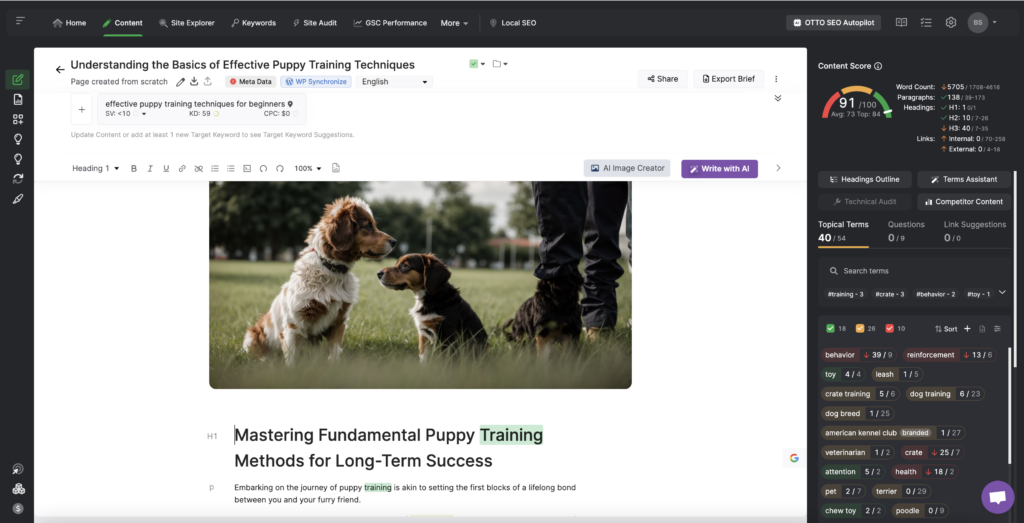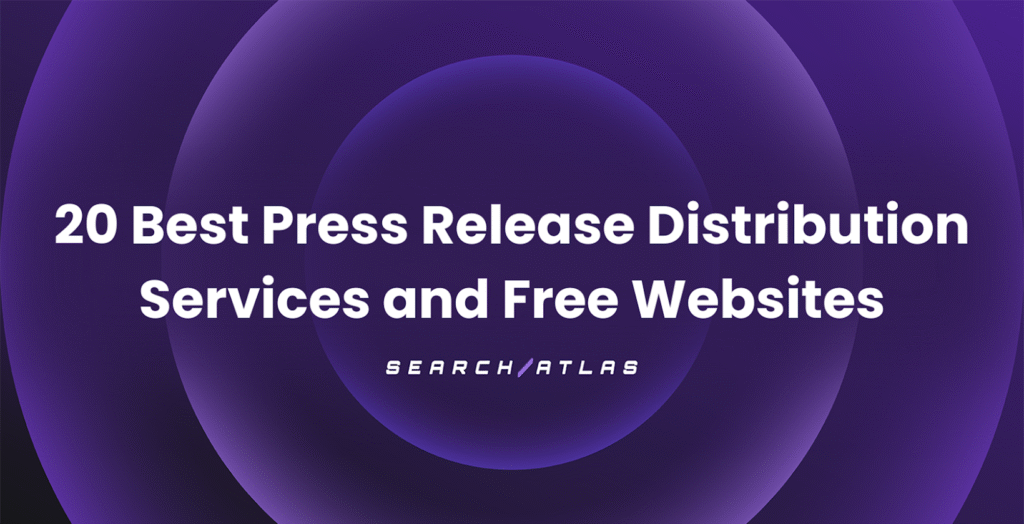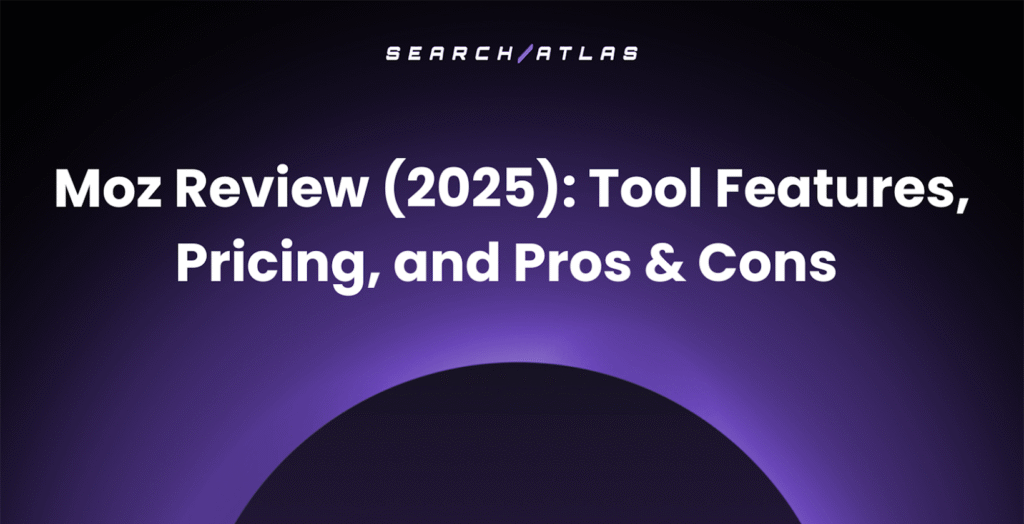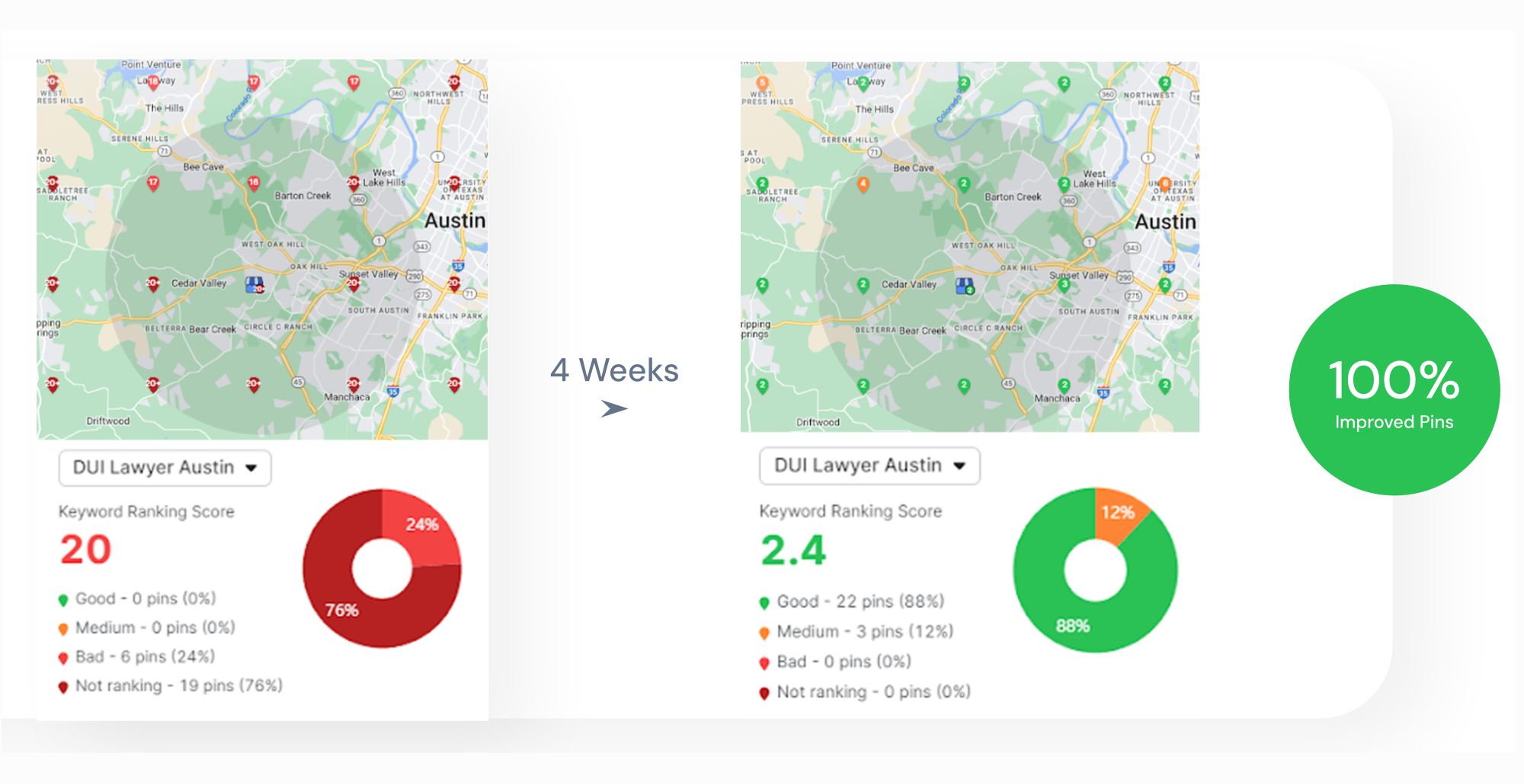Niche keyword research helps you find specific, low-competition keywords that attract the right audience. 👱
In a crowded market, broad keywords are tough to rank for. Niche keywords give you a better chance to reach the right audience.
Think of it this way: If you sell handmade candles, competing for “candles” is tough. But “hand-poured lavender soy candles” is a niche keyword that attracts buyers looking for exactly what you offer.
By using keyword research tools to find the right niche keywords, you can drive quality traffic to your site, whether for SEO or PPC ads.
So, how do you stand out in a sea of competition? We’re going to explain why niche keyword research matters and share 6 simple yet powerful steps to find them! 🔍
What is Niche Keyword Research?
Niche keyword research is about finding highly specific, long-tail keywords (three or more words) that target a focused audience. These keywords may have lower search volume, but they attract people actively looking for what you offer.
For example, instead of targeting “plates,” a niche keyword would be “handmade ceramic dinner plates” or “best shatterproof plates for kids.”

Why Should You Do Niche Keyword Research?
Niche keyword research is crucial for standing out in a competitive market. Instead of competing for broad, high-traffic keywords, niche keywords help you target specific audiences with clear intent.
We can summarize the benefits in the follow list:
- Better SEO Rankings: Less competition makes it easier to rank on search engines. Adding niche keywords to your content helps improve visibility.
- Higher-Quality Leads: Instead of vague searches like “cleaning supplies,” targeting “eco-friendly cleaning products for pet owners” attracts the right audience.
- Lower Advertising Costs: Niche keywords often have a lower cost-per-click (CPC), saving money while reaching users ready to buy.
- Faster Results: Since fewer competitors target niche keywords, you can see quicker wins in both SEO and paid ads.
- Clearer Search Intent: Specific keywords indicate exactly what users are looking for, making it easier to connect with your ideal customers.
6 Steps for Doing Niche Keyword Research
To make the most of your marketing, you need to find the best niche keywords for your business. Here are 6 simple steps to do just that!
1. Define Your Niche Target Audience to Find the Right Search Terms
First, understand your target audience. What do they need? What problems do they face? Your goal is to attract a specific type of customer, so knowing their challenges helps you choose the right keywords.
Start by identifying your customers’ biggest pain points and brainstorming search terms they might use. For example, if they struggle to find stylish, budget-friendly dinnerware, potential niche keywords could be “affordable modern dinner plates” or “best unbreakable plates for kids.”
Search intent is key. A broad keyword like “ceramic plates” is vague, but “handmade ceramic plates for weddings” shows clear intent. The more specific the keyword, the more likely you are to attract the right audience.
Before researching niche keywords, you need to define your niche. Follow these three steps:
- Identify your industry: Are you in home decor, eco-friendly products, or something else?
- Evaluate your offerings: What unique products or services do you provide?
- Pinpoint customer problems: What issues do your products solve?
2. Look for Common Questions in Your Niche to Uncover Opportunities
To find the best niche keywords, start by brainstorming a list of potential search terms. Keep it simple—just jot them down in a spreadsheet for now. You’ll refine them later.
Think like your ideal customer. What are they searching for? If you sell eco-friendly cookware, they might ask, “What’s the safest non-toxic frying pan?” or “Best plastic-free dinnerware for kids.”
You can find great keyword ideas by checking:
- Reddit, Quora, or industry forums.


- Pinterest, YouTube, and other social platforms.
- Google Autocomplete suggestions.

- The “People also ask” section on Google.
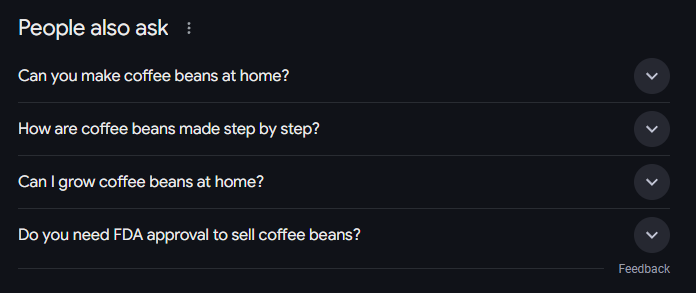
3. Use Tools to Brainstorm Ideas and Generate High-Impact Keywords
You can also use tools to help brainstorm relevant topics for your business. Check out your competitors’ for inspiration, but make sure to add your unique spin to create content that stands out.
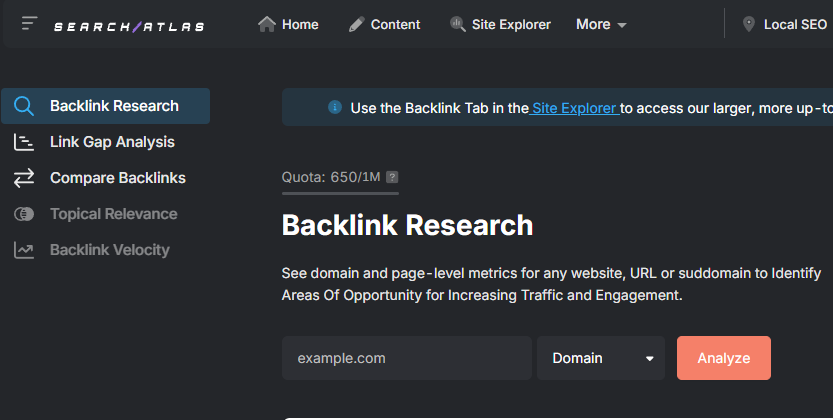
AI tools like ChatGPT are great for generating fresh ideas, and you can use Google Sheets or Excel to organize your list.
If you’re feeling stuck, try using a content planner or a blog idea generator.
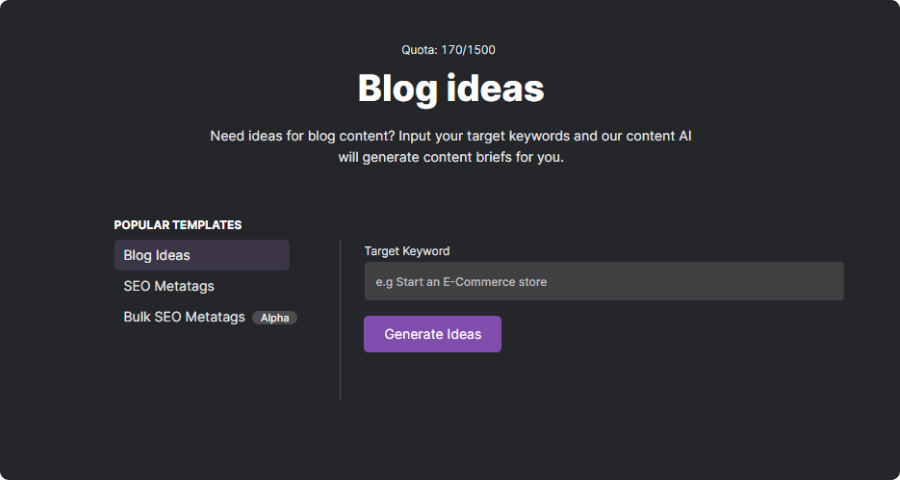
A blog idea generator can suggest trending and creative topics based on your business, taking the guesswork out of content creation and helping you engage your audience.
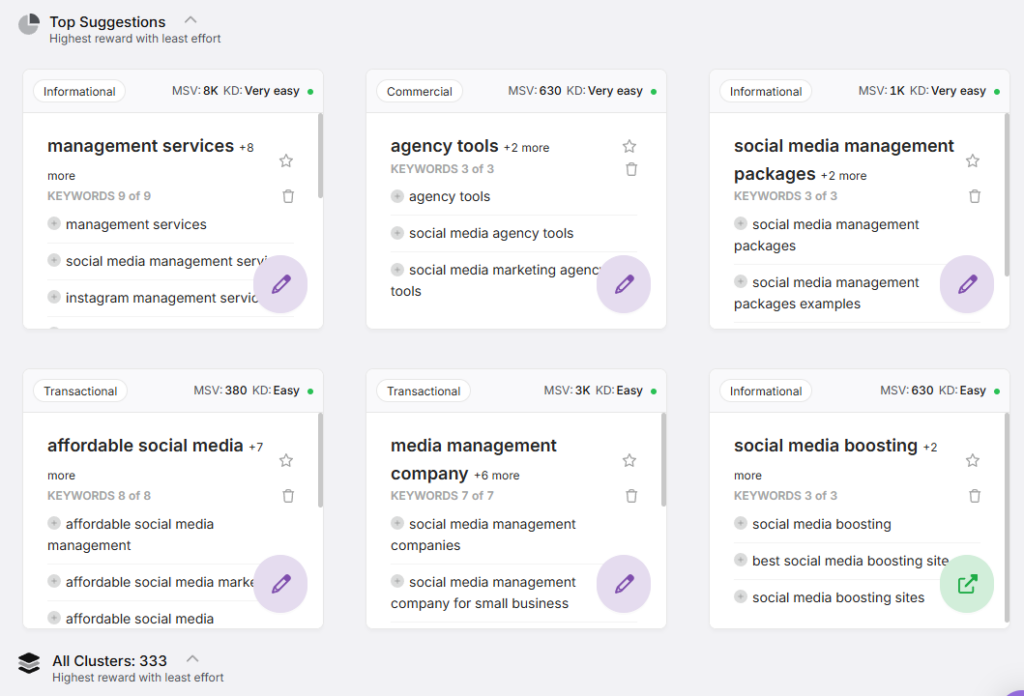
A content planner can help you organize and schedule your posts around key topics and keywords. You can easily create a winning content plan and keep you consistent and on track.
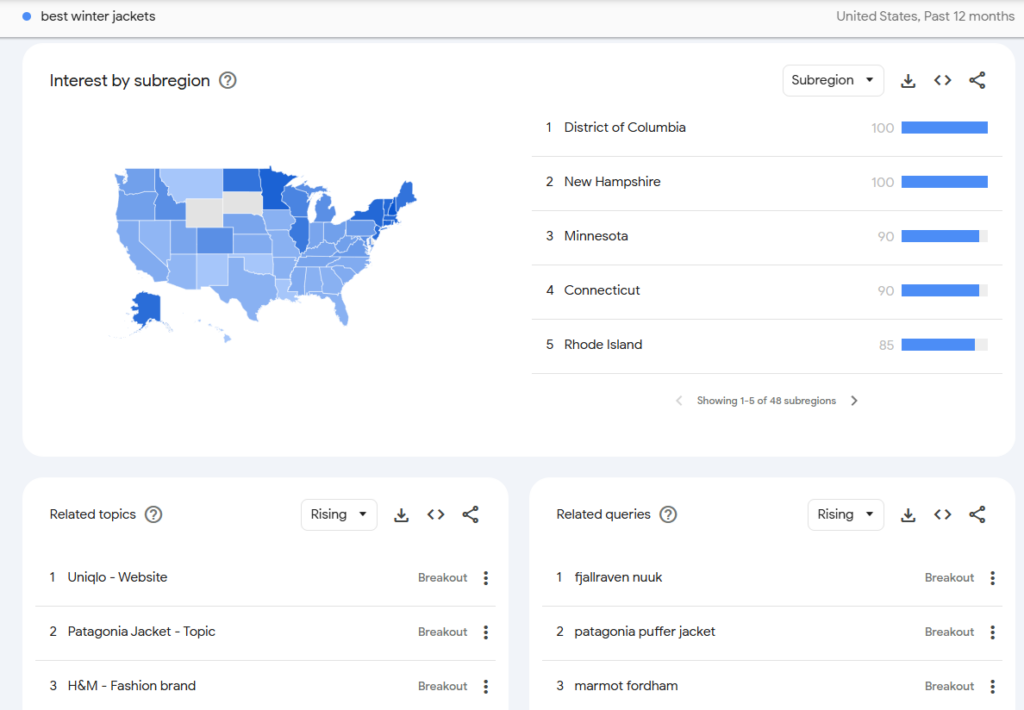
Google Trends is a free tool that shows the popularity of search terms over time. It highlights trends by region and lets you explore past interests, like global events or public figures.
4. Use Niche Keyword Research Tools to Discover the Best Terms
Keyword research is the process of finding the right words and phrases people are searching for to drive traffic to your website.
One powerful tool for finding trending keywords is the Keyword Magic Tool, which helps you discover variations of your keywords and even find long-tail phrases.

Long-tail keywords are longer, more specific phrases (like “best organic cleaners for sensitive skin”), which tend to have lower competition and higher conversion rates.
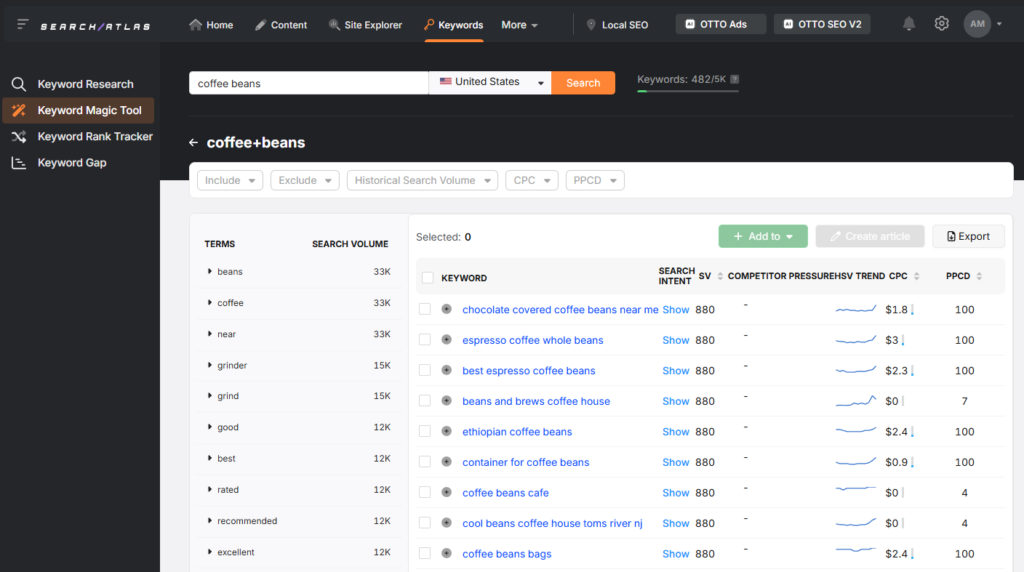
Trending keywords, on the other hand, are popular search terms at the moment, like those tied to current events or hot topics.
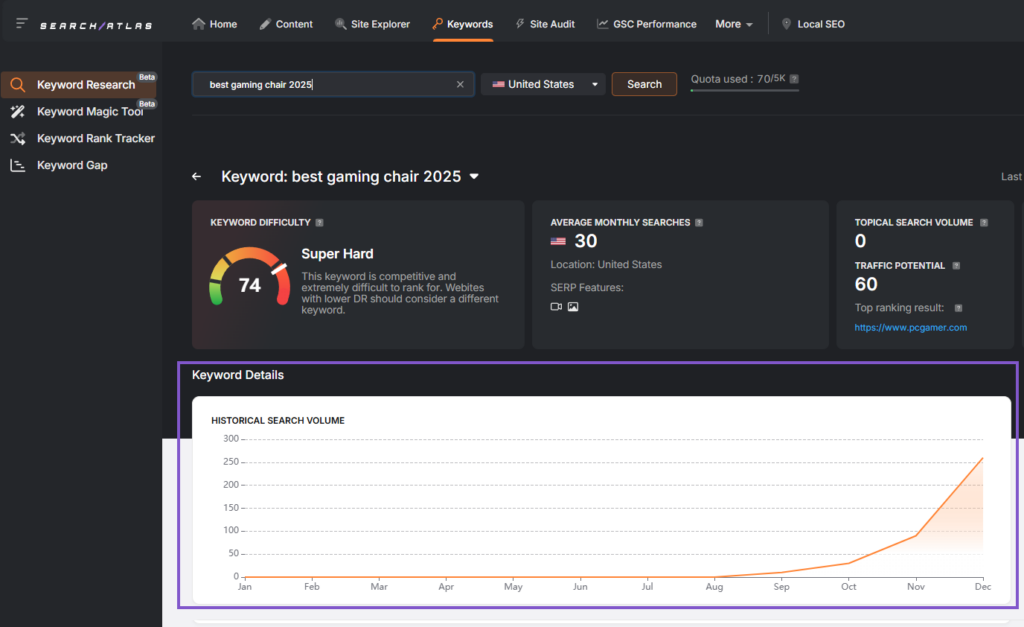
OTTO SEO is the first AI SEO agent that automates all your SEO efforts. OTTO SEO automatically finds the best keywords for your industry, business, and GSC strategy, and seamlessly adds them to your content with just one click.

If you are looking for keywords for your PPC campaign, OTTO Google Ads automatically finds the best keywords for you.
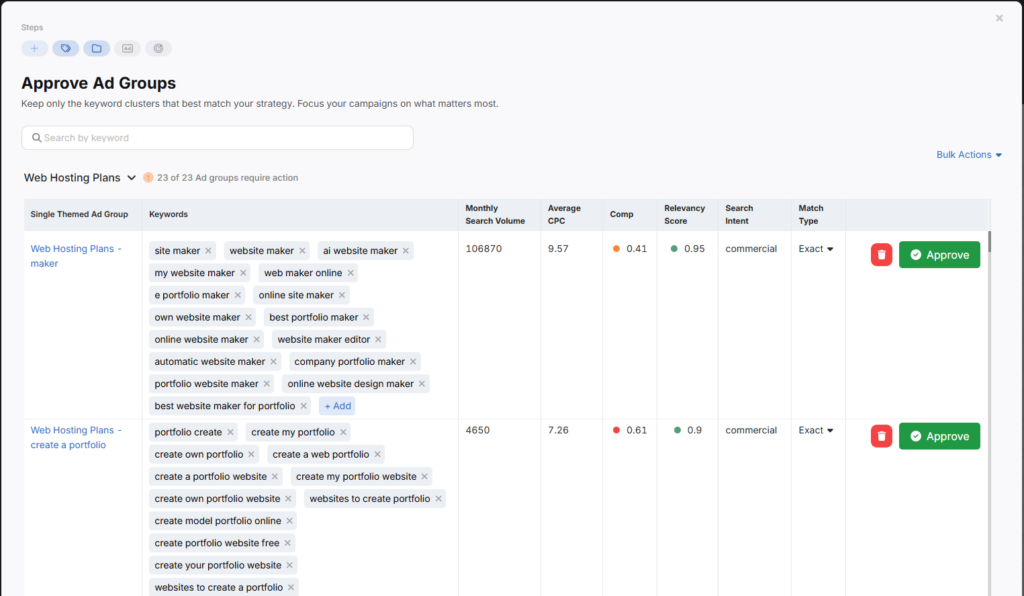
This AI agent streamlines campaign creation, ad group structuring, keyword selection, and ad copy generation.
Once approved, OTTO Google Ads sets up campaigns, organizes ad groups, selects top keywords, and writes optimized ad copies to achieve your goals.
5. Compare Keyword Metrics to Choose the Most Effective Keywords
Use the keyword research tool to receive detailed metrics. Enter your keywords into its Keyword Explorer, and it will give you essential insights like search volume, difficulty, and competition.
When evaluating your keywords, consider these factors:
- Monthly search volume: This shows how many times a keyword is searched monthly. While niche keywords have lower search volume, aim for at least 100 searches per month when possible.
- Keyword difficulty: This measures how tough it is to rank for a keyword. Look for keywords with lower difficulty but decent search volume.
- Keyword intent: Understand what people are looking for when they search. Are they ready to buy, or just gathering information? Choose the keyword intent that aligns with your campaign goals.
Check the CPC for PPC keywords. Be mindful of high-cost keywords in your PPC campaigns to avoid overspending.
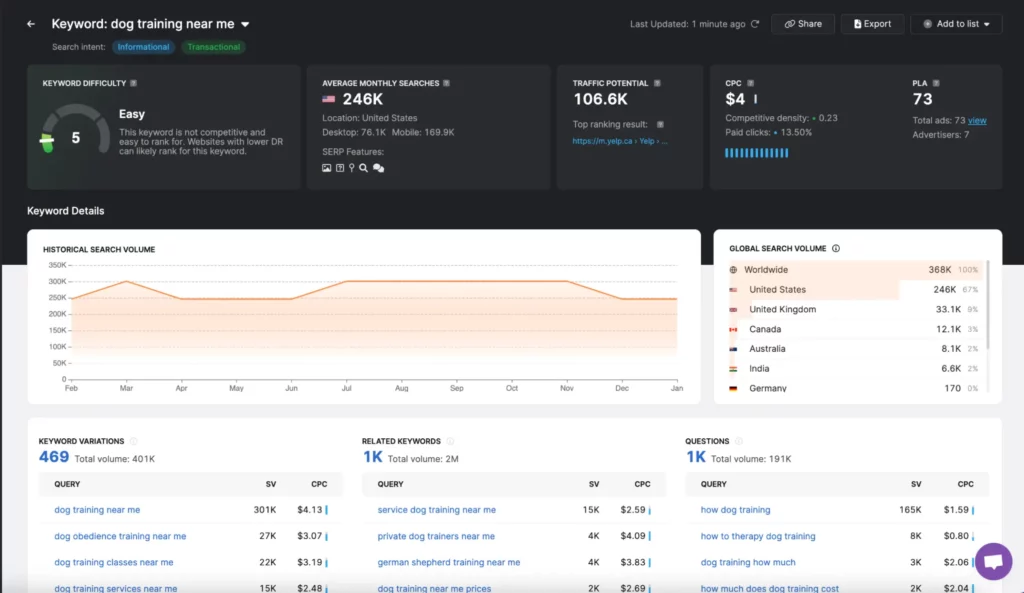
6. Track Niche Keyword Performance Over Time to Optimize and Stay Ahead
SEO and PPC campaigns take time to show results, typically 3-6 months. That’s why tracking keyword performance is crucial.
You won’t see instant success, but consistency is key. If your keywords aren’t delivering results after a few months, it’s time to optimize your content or adjust your strategy.
A keyword tracker helps you monitor rankings, traffic, and trends over time. It shows whether your keywords are gaining traction or if you need to refine your approach.
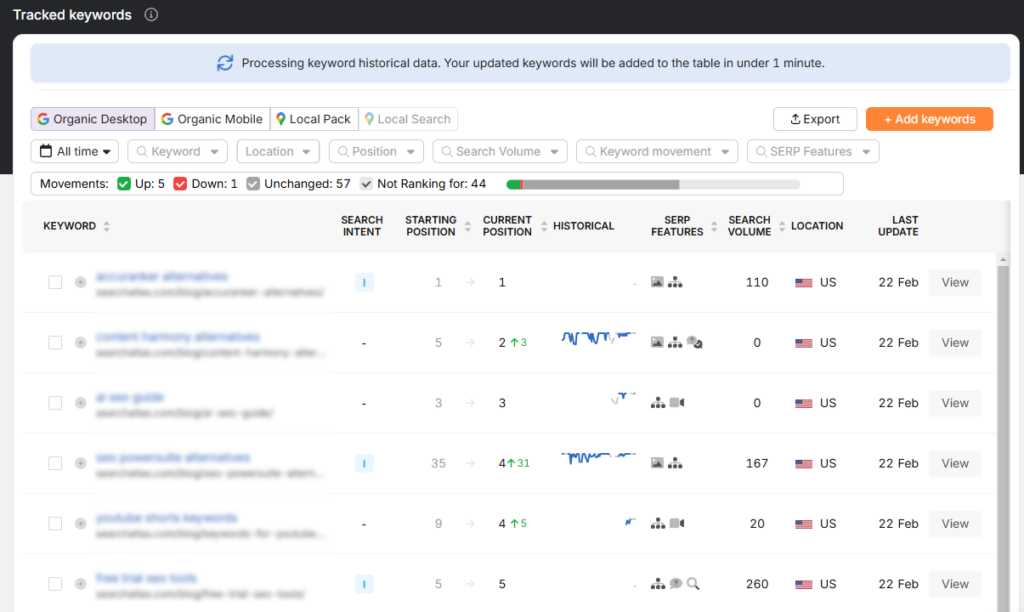
If a page isn’t ranking well, you may need to improve content, build backlinks, or adjust targeting. For PPC, a tracker can reveal if your keywords are too competitive, helping you switch to better-performing alternatives.
To measure your progress effectively, use an automated and customizable SEO report tool that integrates with your Google Search Console (GSC), Google Analytics (GA4), Google Business Profile (GBP), and the SEO tool’s own metrics.
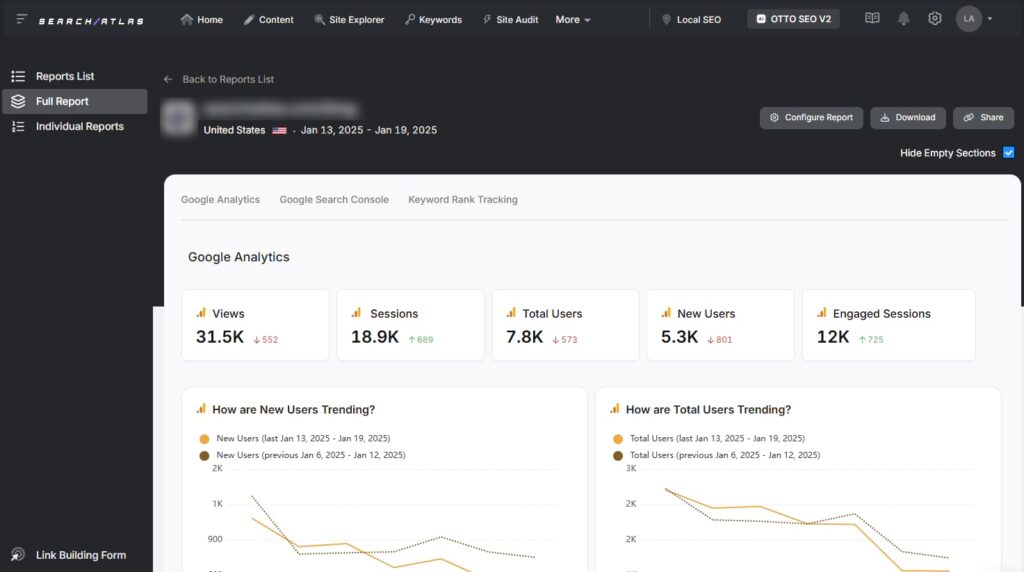
This gives you real-time insights into rankings, traffic, and conversions, helping you make data-driven decisions.
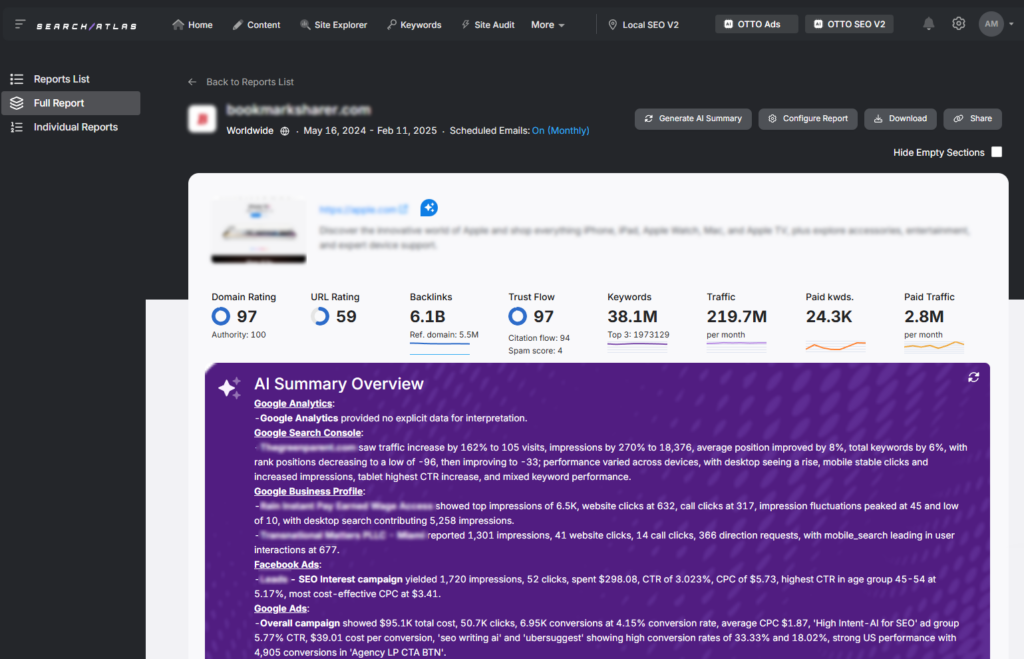
Say Goodbye to Tedious Niche Keyword Research
Niche keyword research is a powerful way to grow your business, attract visitors, and build authority, even in the most competitive industries.
With the right keywords, you can reach the right audience, increase conversions, and strengthen your brand.
But let’s be honest… Doing all this manually takes a huge amount of time. Instead of spending hours researching, tracking, and optimizing, let OTTO SEO or OTTO Google Ads handle it for you.
These AI-powered agents automatically conduct deep keyword research in seconds, pulling data from your Google accounts and website. Plus, they continuously improve over time, making them the smartest and easiest way to stay ahead.
Why not try OTTO and Search Atlas’ tools for yourself? You can start for free: Get your free trial today!


